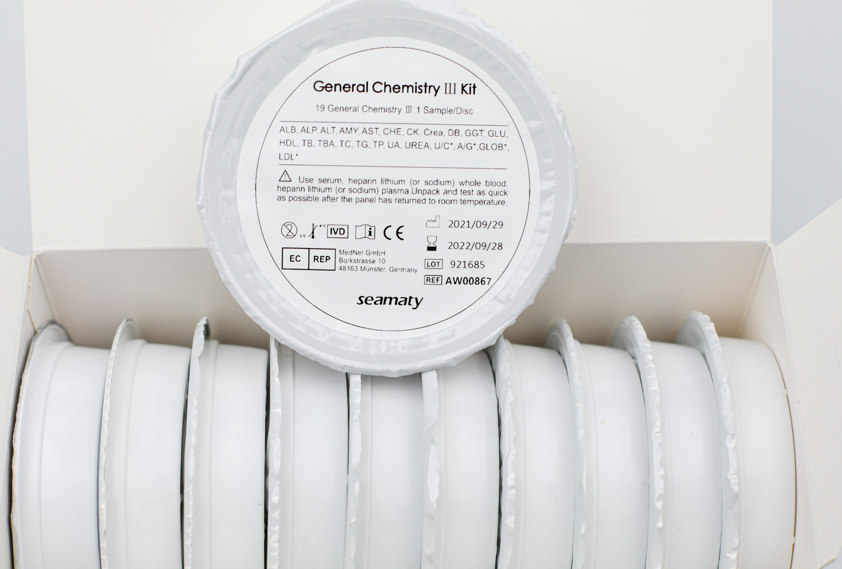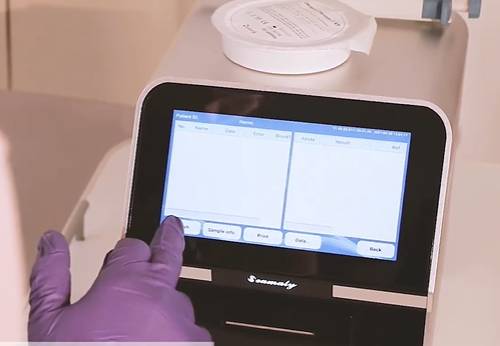With the widespread popularity of automatic biochemical analyzers, the issue of water quality has gradually become a concern for the industry. Automatic biochemistry analyzers have strict requirements for water quality. The quality of the water directly affects the experimental results and biochemical instrument life. At present, water quality has become one of the important factors affecting the quality of biochemical testing.
In the automatic biochemical analyzer testing process, deionized water as a biochemical reaction carrier and medium, the sample or reagent dilution and solvent, the instrument cleaning solution and even the reaction of participants throughout the entire process of testing. Its purity level is directly related to the credibility of the test results.
The pure water used with the automatic biochemical analyzer is required to meet the national requirements.
Deionized water quality on the biochemical analyzer and the impact of test results
1. the main components of unqualified deionized water
-
(1) electrolytes, common H, Na, K, NH +, Mg, Ca ... Fe, Cu, Mn, Zn, Al and other cations and F, Cl, NO ... SO4, PO, HPO, HSiO and other anions.
-
(2) Organic substances, such as organic acids, pesticides, hydrocarbons, alcohols and esters, etc.
-
(3) Particulate matter.
-
(4) Microorganisms.
-
(5) dissolved gases (N2, O, Cl2, H2S, CO, CO2CH, etc.)
-
(6) Others
2. the effect of different impurity components on biochemical analyzer and test results
2.1 The effect of high electrolyte content
-
(1) The most direct effect is the increase of different kinds of ions in the serum (plasma) measurement results. For example, the determination of Mg, Ca, Fe, Cu, Mn, Zn, etc.. It also has an impact on the calibrations of these items.
-
(2) Since many metal ions are cofactors of enzymes, it often affects the assay of enzyme activity when the metal ion content is high. For example, Mg is the activator of many phosphorylated kinases, and an excessive level of Mg in water can lead to an increase in the measured value of these enzyme activities. Many heavy metal ions have an inhibitory effect on enzymes, resulting in a decrease in enzyme activity.
-
(3) Many anions are also present as cofactors of enzymes, which have an impact on the determination of enzyme activity.
-
(4) Water with high electrolyte content is more likely to form crystals and cause organic matter such as proteins to denature and adhere to the piping system, thus making the biochemical analyzer piping system more prone to clogging. Eventually, it causes distortion or failure of the assay. It is also difficult to clean the reaction cup when it is used for cleaning. It will accelerate the aging and damage of the reaction cup and make the cup blank rise.
2.2 Influence of organic substances
It is mainly in the determination of similar substances that lead to the elevation of similar substances determination results. It has been reported that the duration of use of activated carbon and before and after replacing the carbon core have a greater effect on the enzymatic assay of creatinine. Also, elevated organic matter content accelerates the difficulty of cleaning and aging of the piping system and reaction cup.
2.3 Influence of particulate matter
Particulate matter is generally difficult to enter the biochemical analyzer pipeline and reaction system through the deionized water system. Its source is generally the purification process or storage tank occurred in the secondary pollution. However, once it enters, in addition to causing an increase in absorbance, it is also easy to block the pipeline and damage the reaction cup.
2.4 Effect of microorganisms
-
(1) Microorganisms breed in the piping and reaction system, leading to clogging of the piping, as well as an increase in absorbance and cup blank.
-
(2) Microorganisms produce specific enzymes that have an impact on the enzyme assay of the biochemical analyzer. The specific effects depend on the type of contaminating bacteria.
2.5 Effects of increased dissolved gases
-
(1) The effect on the determination of the same gas (e.g. CO2).
-
(2) The effect on the pH value of water. Such as the dissolution of CO2, CL, H2S, etc. leads to a decrease in PH value. This also has an effect on the determination of biochemical items that depend strongly on the PH value.
-
(3) The increase of certain gases, such as Cl2, will have an impact on the biochemical measurement items related to redox reactions because of its own strong oxidizing properties.
Therefore, the use of such large biochemical analyzers must often pay attention to the water quality of biochemical instruments, regular replacement of consumables. Let the water quality always meet is the water requirements of automatic biochemical analyzer.


